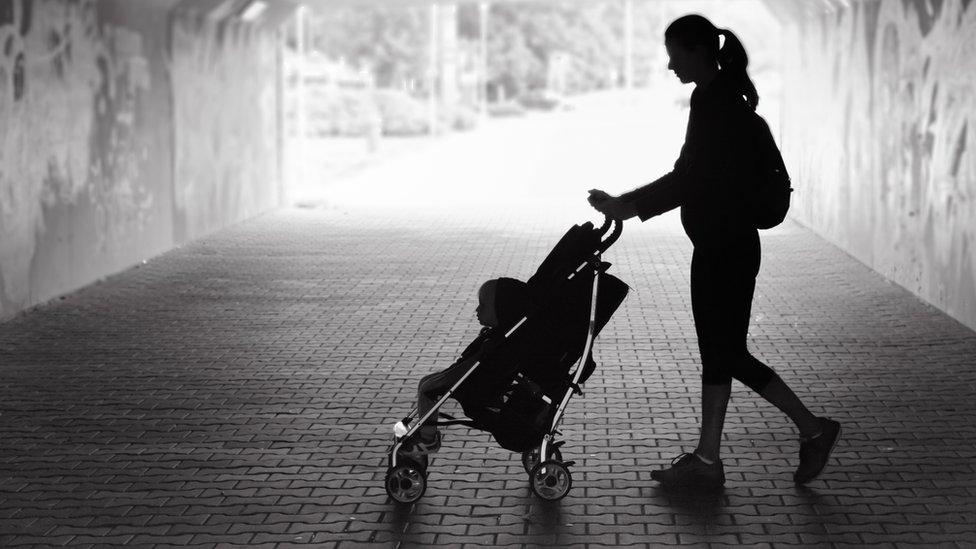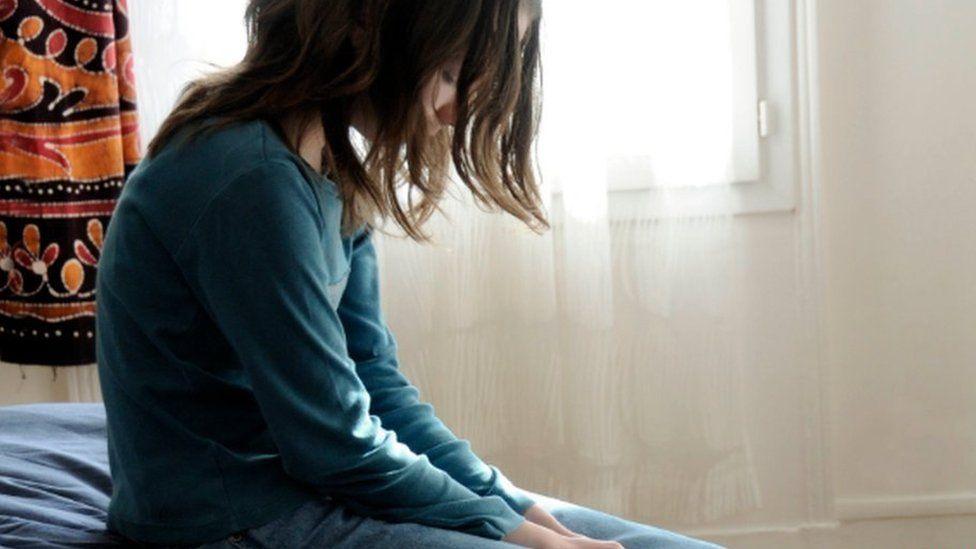Steep rise in North East child poverty levels
- Published

The report found 67% of children living in poverty were from working families
Child poverty across the North East of England has climbed more than 34% since 2014/15, new research suggests.
Research from Loughborough University for the End Child Poverty Coalition found that 51,000 more children are now living in poverty in the region.
The North East has seen the steepest rise in levels of poverty in the UK, it claimed.
The government said there are nearly two million fewer people in absolute poverty than in 2010.
The End Child Poverty Coalition estimates that more than a third of babies, children and young people in the region were living below the poverty line in 2021/22.
Statistics on childhood poverty are produced using Households Below Average Income data released annually by the Department for Work and Pensions (DWP).
The DWP data is "considered the official poverty statistics for the UK", the Child Poverty coalition said.
Nationally, 4.2m children were found to be in poverty in 2021/22 - the same rate as in 2014/15.
Of the 20 parliamentary seats that have seen the biggest increases, six are in the North East.
According to the research, almost 67% of children living in poverty in the region are from working households.
In addition, 46% of children living in lone-parent families are living below the poverty line.
Almost two-thirds of children from black or minority ethnic communities in the region are estimated to be in poverty, the highest rate in the UK for children in this group.
'Shocking'
Chair of the North East Child Poverty Commission, Anna Turley, said the figures were "simply unacceptable".
The former Labour MP for Redcar said the research did not account for "hardship felt today as a result of the cost-of-living crisis".
"The findings of this report are all the more shocking because we know that poverty is not an unsolvable problem, including for children here in the North East, which should be the best place to grow up and raise a family.
"In what remains one of the wealthiest countries in the world, it is absolutely within our gift to fix this and doing so should be the aim of any government.
"This has to start with political determination, a joined-up plan which recognises the scale of the challenge we face, and the right long-term investment in children and families.'
A government spokesperson said there were fewer people in poverty than in 2009/10.
"There are nearly two million fewer people, including 400,000 fewer children, in absolute poverty than there were in 2009/10 - proving our commitment to helping the most vulnerable.
"We are providing a £94bn package of immediate cost of living support worth around £3,300 per household. But in the long-term, the best route out of poverty is through employment, which is why we are boosting our childcare offers to help more parents to re-enter and progress in work.
"The two-child policy asks families on benefits to make the same financial decisions as families supporting themselves solely through work, and there continues to be careful exemptions and safeguards in place within the policy to protect people in the most vulnerable circumstances."

Follow BBC North East & Cumbria on Twitter, external, Facebook, external and Instagram, external. Send your story ideas to northeastandcumbria@bbc.co.uk, external.
Related topics
- Published2 June 2022

- Published12 July 2022
